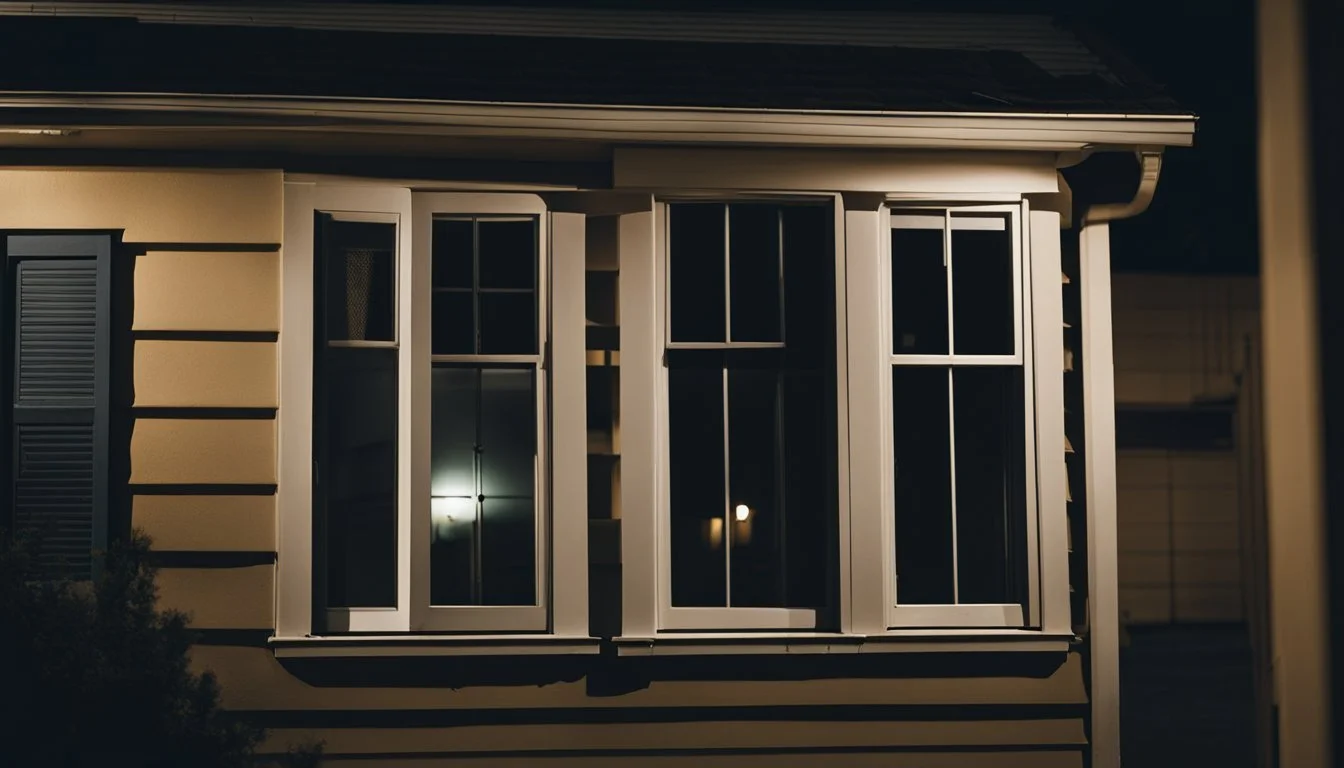6 Harrowing Films Covering the Cheshire, Connecticut Home Invasion Murders
A Cinematic Exploration of True Crime
The Cheshire, Connecticut home invasion murders of 2007 shocked the nation with their brutality and senselessness. This tragic event, which resulted in the deaths of Jennifer Hawke-Petit and her two daughters, has been the subject of numerous films and documentaries over the years. These productions aim to shed light on the horrific crime, its impact on the community, and the ongoing quest for justice.
Filmmakers have approached this difficult subject matter from various angles, exploring the details of the crime, its aftermath, and the broader societal issues it raises. Through interviews, reenactments, and archival footage, these films provide viewers with a deeper understanding of the events that unfolded on that fateful day in July 2007. They also examine the trial proceedings and the subsequent debates surrounding capital punishment in Connecticut.
1) The Killer Next Door (2011)
"The Killer Next Door" is a made-for-TV movie that dramatizes the events leading up to the Cheshire home invasion murders. The film focuses on the perpetrators, Joshua Komisarjevsky and Steven Hayes, exploring their backgrounds and motivations.
The movie portrays how Komisarjevsky and Hayes met and planned their crime. It depicts their initial encounter with Jennifer Hawke-Petit and her daughter Michaela at a local grocery store, which led to the tragic events that followed.
"The Killer Next Door" attempts to provide insight into the mindset of the criminals while also portraying the devastating impact of their actions on the Petit family and the community of Cheshire, Connecticut.
The film serves as a chilling reminder of how seemingly ordinary individuals can commit heinous acts. It highlights the importance of community vigilance and the unpredictable nature of violent crime.
More information on "The Killer Next Door"
2) Hartford Courant Coverage
The Hartford Courant played a significant role in reporting on the Cheshire home invasion case. As Connecticut's largest daily newspaper, it provided extensive coverage of the events and subsequent legal proceedings.
The Courant's journalists conducted in-depth investigations and interviews, shedding light on various aspects of the case. Their reporting included details about the police response and previously undisclosed information.
One notable revelation from the Courant's coverage was related to police actions on the day of the incident. The newspaper reported that law enforcement had taken steps to intercept the vehicle carrying Jennifer Hawke-Petit to a local bank.
The Hartford Courant's thorough reporting helped keep the public informed about developments in the case. It provided a comprehensive account of the trials of Joshua Komisarjevsky and Steven Hayes, the perpetrators of the crime.
Through its ongoing coverage, the Courant contributed to public understanding of this tragic event and its impact on the community.
3) Dr. William Petit Testimony
Dr. William Petit's testimony provides a chilling firsthand account of the Cheshire home invasion. As the sole survivor of the attack, his words carry immense weight in documenting the events of that tragic day.
Petit's testimony details the horrific ordeal he and his family endured. He recounts being awakened by intruders, beaten with a baseball bat, and tied up in the basement. His vivid descriptions paint a harrowing picture of the crime.
Despite his own injuries, Petit managed to escape and seek help from neighbors. His testimony not only served as crucial evidence in the trials of the perpetrators but also shed light on the devastating impact of the crime.
Petit's courageous decision to testify helped ensure justice for his family. His powerful words in court provided a voice for the victims and contributed to the convictions of the attackers.
The doctor's testimony stands as a testament to human resilience in the face of unimaginable tragedy. It offers a deeply personal perspective on one of the most shocking crimes in Connecticut's history.
More information on Dr. William Petit
4) True Crime Daily Episode (2018)
True Crime Daily, a popular true crime news program, featured an episode covering the Cheshire home invasion murders. The show provided a detailed account of the tragic events that unfolded on July 23, 2007.
The episode included interviews with law enforcement officials and legal experts involved in the case. It explored the backgrounds of the perpetrators, Steven Hayes and Joshua Komisarjevsky, and their criminal histories.
True Crime Daily's coverage also focused on the heroic efforts of Dr. William Petit, the sole survivor of the attack. The show highlighted his journey of recovery and his advocacy work for victims' rights in the years following the tragedy.
The episode examined the legal proceedings that followed the crime, including the trials and convictions of Hayes and Komisarjevsky. It provided insight into the evidence presented and the arguments made by both the prosecution and defense.
Viewers were given a comprehensive look at the impact of the crime on the Cheshire community and the broader discussions it sparked about home security and the criminal justice system.
More information on True Crime Daily
5) Cheshire Murders Documentary (2013)
"The Cheshire Murders" is a compelling HBO documentary that delves into the tragic 2007 home invasion in Cheshire, Connecticut. Directed by Kate Davis and David Heilbroner, the film provides a comprehensive look at the horrific crime that shook the quiet suburban community.
The documentary explores the events leading up to the murders of Jennifer Hawke-Petit and her two daughters, Hayley and Michaela. It examines the actions of the perpetrators, Steven Hayes and Joshua Komisarjevsky, as well as the police response to the incident.
Through interviews with family members, law enforcement officials, and legal experts, the film offers multiple perspectives on the case. It raises questions about the criminal justice system and the potential prevention of such heinous acts.
"The Cheshire Murders" also touches on the aftermath of the crime, including its impact on the sole survivor, Dr. William Petit Jr., and the broader community. The documentary presents a balanced and factual account of this tragic event.
6) Lifetime's "The Cheshire Murders" (2013)
Lifetime Network produced a documentary film titled "The Cheshire Murders" in 2013. The film provides an in-depth look at the tragic home invasion that occurred in Cheshire, Connecticut in 2007.
Directed by Kate Davis and David Heilbroner, the documentary examines the events of July 23, 2007. It recounts how two men broke into the Petit family home, leading to a horrific crime that shocked the nation.
The film features interviews with family members, law enforcement officials, and legal experts. It explores the aftermath of the crime and its impact on the community of Cheshire.
"The Cheshire Murders" delves into the investigation process and the subsequent trials of the perpetrators. It also raises questions about the criminal justice system and the death penalty debate in Connecticut.
The documentary received critical acclaim for its thorough and sensitive approach to the subject matter. It premiered on HBO and later aired on Lifetime, reaching a wide audience.
Background of the Cheshire, Connecticut Home Invasion Murders
The Cheshire home invasion murders shocked Connecticut in July 2007. Two career criminals targeted the Petit family, leading to a horrific night of violence that left three family members dead and the sole survivor traumatized.
Timeline of Events
On July 22, 2007, Steven Hayes and Joshua Komisarjevsky spotted Jennifer Hawke-Petit and her 11-year-old daughter Michaela at a local supermarket. They followed them home and hatched a plan to rob the family.
Around 3 AM on July 23, the intruders broke into the Petit home. Dr. William Petit was beaten and tied up in the basement. His wife and two daughters were held captive upstairs.
At 9:30 AM, Jennifer Hawke-Petit was forced to withdraw $15,000 from a bank. She alerted the teller about the hostage situation. Police were notified but did not immediately enter the home.
By 10 AM, the house was set on fire. Dr. Petit managed to escape. Jennifer had been strangled, while daughters Michaela and Hayley died of smoke inhalation.
Involved Individuals
Victims:
Dr. William Petit Jr. (survivor)
Jennifer Hawke-Petit (age 48)
Hayley Petit (age 17)
Michaela Petit (age 11)
Perpetrators:
Steven Hayes (born 1963)
Joshua Komisarjevsky (born 1980)
Both Hayes and Komisarjevsky had extensive criminal records and met in a halfway house. They were arrested while attempting to flee the crime scene. In separate trials, both men were convicted on multiple charges including murder, kidnapping, and sexual assault.
The Petit family murders led to increased scrutiny of parole policies and home security measures in Connecticut. Dr. William Petit has since become an advocate for victims' rights and founded a charitable organization in memory of his family.
Impact on the Community and Legal System
The Cheshire home invasion murders profoundly affected local residents and prompted changes to Connecticut's criminal justice system. Public safety concerns escalated, while lawmakers introduced new legislation in response to the tragedy.
Community Reactions
Cheshire residents experienced heightened fear and anxiety following the murders. Many families increased home security measures, installing alarm systems and reinforcing locks. Neighborhood watch programs expanded, with citizens becoming more vigilant.
The tragedy brought the community closer together. Vigils and memorial services honored the Petit family, with thousands attending to show support. Fundraisers and charity events raised money for victims' advocacy groups and domestic violence shelters.
Local schools implemented new safety protocols and counseling services to help students cope with the trauma. The incident sparked ongoing discussions about crime prevention and community policing strategies.
Changes in Legislation
Connecticut lawmakers passed several bills in response to the Cheshire murders. The "Three Strikes" law imposed life sentences for criminals convicted of three violent felonies. Parole policies were tightened, making it harder for violent offenders to gain early release.
Home invasion became a distinct criminal offense with harsher penalties. The state allocated more funding for GPS monitoring of parolees and improved victim notification systems. Stricter background checks for paroled offenders seeking employment were implemented.
The death penalty debate intensified, leading to its eventual repeal in Connecticut in 2012. Advocates argued that even this heinous crime did not justify capital punishment, while others pushed to retain it for the most severe cases.
Portrayal in Media
The Cheshire home invasion murders have been depicted in various documentaries, television specials, and films. These portrayals have sparked public interest and critical discussions about the case's presentation in media.
Documentaries and TV Specials
"The Cheshire Murders" (2013), an HBO documentary, provided an in-depth look at the case. It featured interviews with family members, law enforcement, and community residents. The film explored the events leading up to the crime and its aftermath.
In 2010, ABC's "20/20" aired a special episode titled "The Family Next Door." This segment focused on Dr. William Petit's journey of healing and resilience after the tragedy.
Investigation Discovery's "Home Invasion" series dedicated an episode to the case in 2016. It offered a detailed reconstruction of the events and included insights from investigators.
Public Reception and Critiques
Media portrayals of the Cheshire murders have drawn both praise and criticism. Some viewers appreciated the thorough examination of the case and its impact on the community.
Critics argued that certain depictions sensationalized the tragedy. Concerns were raised about the potential retraumatization of survivors and family members.
Ethical debates emerged regarding the balance between public interest and respect for the victims' privacy. Some media outlets were criticized for their graphic descriptions of the crime.
The portrayal of the perpetrators also sparked controversy. Questions arose about the extent of coverage given to the criminals' backgrounds and motivations.






